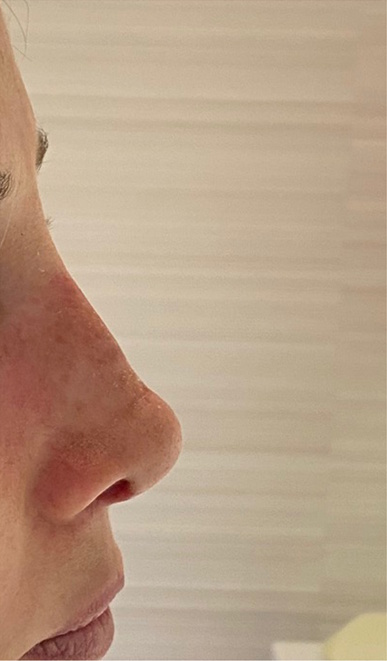In facial cosmetic surgery, rhinoplasty is one of the most commonly performed procedures for both women and men.
A nose that is overly prominent or damaged can often be a significant source of aesthetic concerns.
Rhinoplasty can help restore confidence and overall well-being by reshaping the nose.
Pre-operative Instructions
Discontinue contraceptive pills or hormonal implants at least one month before the procedure.
Avoid any medication containing aspirin for ten days prior to surgery.
Cessation of smoking is strongly recommended.
Course of the Procedure
Before the procedure, an initial consultation is conducted with your surgeon, providing an opportunity to discuss your needs and expectations.
The incision is usually made inside the nostrils to access the cartilage and bone of the nose without leaving any visible surgical marks. In some cases, an external incision may be made across the columella to allow the surgeon better access to the nasal framework (open rhinoplasty).
Once the incisions are made, the surgeon can reshape the bony and/or cartilaginous structure of the nose, performing either a reduction rhinoplasty or an augmentation rhinoplasty, depending on the patient’s needs.
At the end of the procedure, a cast or splint is applied to protect the nose. Nasal packing may also be inserted to control bleeding.
These structures are carefully reshaped by Dr. Balti to achieve the desired aesthetic result for the patient.
Duration of the Procedure
Cosmetic nasal surgery is performed under general anesthesia and lasts between 1.5 and 3 hours.
Return to Work
Normal daily activities can usually be resumed after 3 to 4 days.
Avoid physical activities for 2 to 3 weeks, as they may worsen swelling.
It is important to avoid any direct impact or trauma to the nose for 2 months following your rhinoplasty in Tunisia.
Wearing glasses should be avoided for several weeks.
Exposure to heat and sunlight poses a risk of poor healing during the first month after surgery and should therefore be minimized.
Keeping the head elevated helps reduce swelling.
Result
The nose will be swollen for a few days due to the formation of edema, which is usually more pronounced the day after the procedure than immediately afterward. However, swelling begins to subside after a few days with the aid of appropriate treatment. Bruising may also occur (not always), appearing under the eyes and around the nose. Complete resolution of the swelling can take up to 6 months, at which point the final result of your rhinoplasty in Tunisia can be assessed.
Before

After

